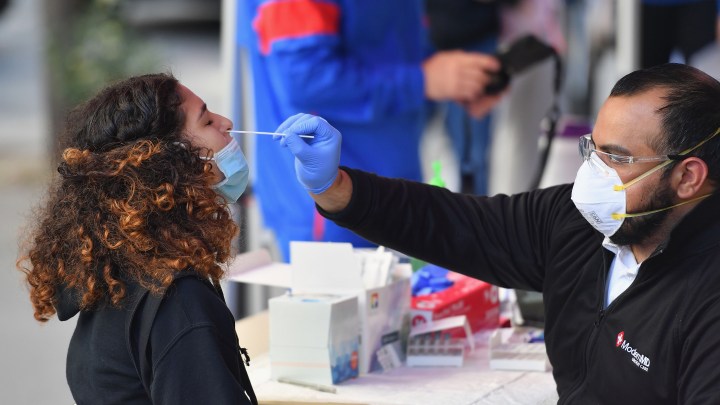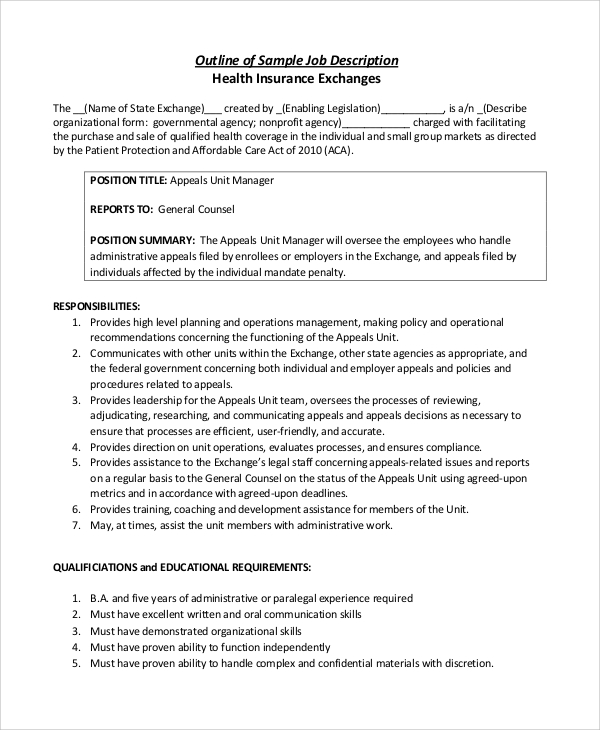A Health Insurance Job is a valuable career choice that provides opportunities to help people protect themselves and their loved ones against the costs of medical treatment. However, even the most comprehensive health insurance policies have exclusions, which can leave policyholders vulnerable to unexpected expenses. In this article, we will explore the most common exclusions in health insurance plans, why having a job makes it more likely you have health insurance, and how to obtain health insurance without a job.
What are the Most Common Exclusions in Your Health Insurance Plan?
Pre-existing conditions
Pre-existing conditions are medical conditions or illnesses that existed before the start of your health insurance coverage. Most health insurance plans exclude pre-existing conditions, which means that medical treatment and medication for these conditions will not be covered by your policy.

To obtain coverage for a pre-existing condition, you may need to seek out a specialized health insurance plan or apply for a new policy that includes coverage for pre-existing conditions.
Elective procedures
Elective procedures are non-emergency medical treatments that are performed by choice rather than necessity. Most health insurance plans do not cover elective procedures, including cosmetic surgery, weight-loss surgery, and experimental treatments.
While some elective procedures can have medical benefits, policies typically exclude coverage to manage costs and ensure coverage for essential medical treatments.
Dental, vision, and hearing care
Most health insurance plans do not include coverage for dental, vision, and hearing care, unless these treatments are medically necessary. This means that routine check-ups, glasses and contacts, and hearing aids may not be covered by your policy.
To obtain coverage for these services, you may need to purchase a separate dental, vision, or hearing insurance plan or pay out-of-pocket for the necessary services.
Why having a job makes it more likely you have health insurance

Having a job with health insurance benefits is one of the most common ways that people gain access to healthcare coverage. According to the Bureau of Labor Statistics, 70% of civilian workers had access to employer-sponsored healthcare benefits in 2020.
Employer-sponsored health insurance plans are typically less expensive than individual policies because they are purchased at a group rate. Employers also pay a portion of the premium, reducing the cost for employees.
In addition, employer-sponsored health insurance plans are often more comprehensive than individual policies, providing coverage for essential medical treatments and services.
Health Insurance Without a Job (Your Choices + What We Did) in 2020

If you do not have a job with health insurance benefits, you can still obtain health insurance coverage through several options:
Marketplace insurance
The Health Insurance Marketplace is a government-managed platform where individuals and families can purchase health insurance policies. Marketplace insurance plans are standardized and offer essential medical treatments and services.
The cost of Marketplace insurance plans depends on your income and family size. You can also apply for premium tax credits and cost-sharing reductions to make coverage more affordable.
Catastrophic insurance
Catastrophic insurance is a type of health insurance plan that provides coverage for major medical expenses, such as hospitalization, surgery, and emergency care. Catastrophic plans have high deductibles and cost-sharing requirements, making them less expensive than traditional health insurance plans.
However, catastrophic plans do not cover routine medical treatments and services, including preventive care.
Short-term health insurance
Short-term health insurance is a temporary health insurance policy that provides coverage for a limited period, usually up to 12 months. Short-term plans have lower premiums than traditional health insurance plans, making them an affordable option for people who are between jobs or waiting for coverage to begin.
However, short-term plans do not provide coverage for pre-existing conditions and may have other exclusions, such as maternity care and mental health treatment.
Health Insurance Jobs Continue to Grow With USHealth Group at the

If you are interested in pursuing a career in the health insurance industry, there are many job opportunities available. USHealth Group is one of the leading health insurance companies in the United States, offering a range of health insurance policies and services.
USHealth Group provides comprehensive training and support for new employees, including ongoing professional development and opportunities for advancement. The company also offers competitive compensation and benefits packages, making it a desirable employer for those seeking a career in the health insurance industry.
FREE 7+ Sample Insurance Agent Job Description Templates in PDF

If you are looking for a job in the health insurance industry, understanding the role of an insurance agent is essential. An insurance agent is responsible for selling health insurance policies to individuals and families and helping them navigate the complexities of the healthcare industry.
To succeed as an insurance agent, you must have excellent communication and interpersonal skills, be knowledgeable about health insurance policies and regulations, and be able to work independently and as part of a team.
By understanding the common exclusions in health insurance plans and the various options for obtaining coverage without a job, you can make informed decisions about your healthcare and pursue a successful career in the health insurance industry.
Find more articles about Health Insurance Job